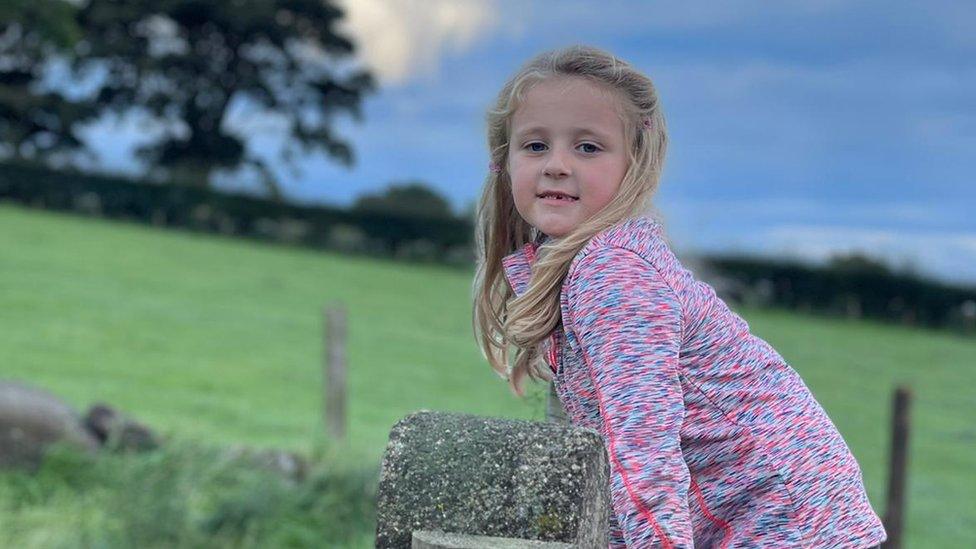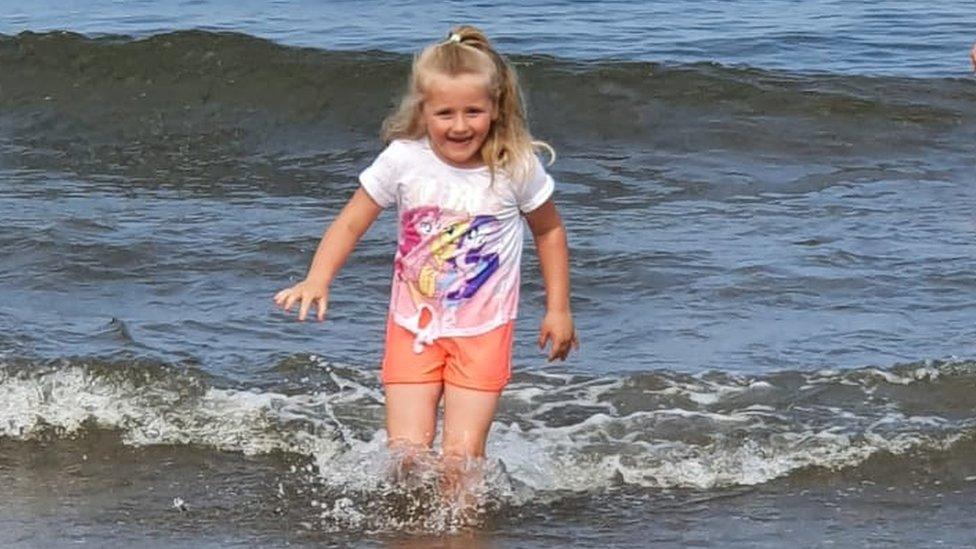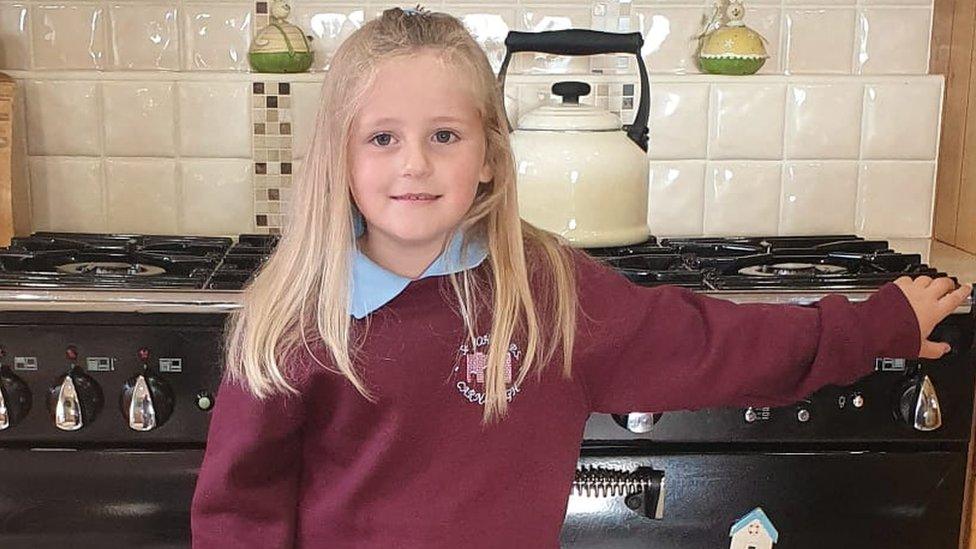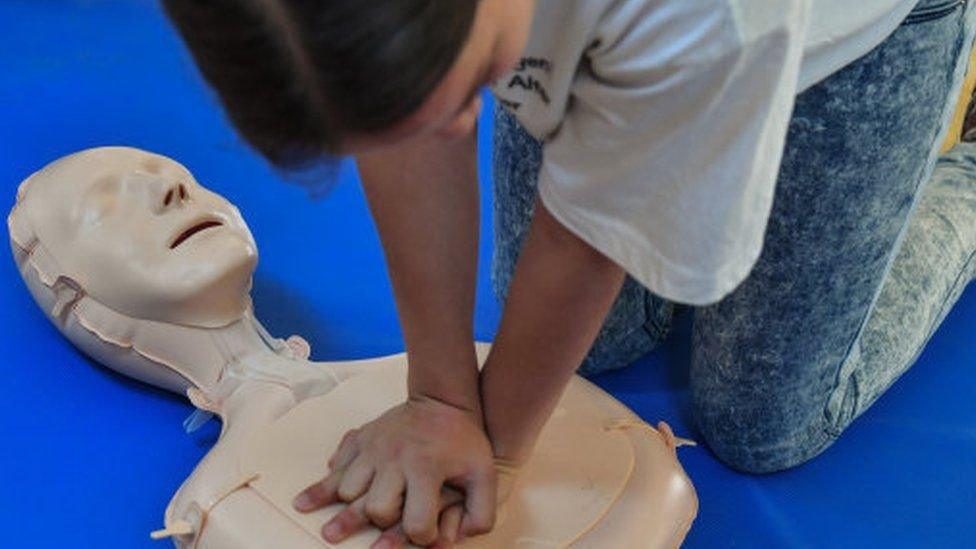Fire crews could be dispatched to support NI Ambulance Service
- Published

Five-year-old Maggie Black from Glenarm died in December after she had been feeling unwell for several days
A scheme which would see fire crews dispatched to support the NI Ambulance Service in some medical emergencies is being considered.
A pilot previously saw the Northern Ireland Fire and Rescue Service (NIFRS) sent to suspected cardiac calls in Lurgan in 2016.
Discussions are underway about a similar model being rolled out.
It means local firefighters may arrive ahead of paramedics to administer potentially life-saving treatment.
This could be CPR and defibrillation.
However the family of a County Antrim girl who died last month have said available fire crews should be despatched to all medical emergencies in rural areas, not just cardiac calls.
Five-year-old Maggie Black from Glenarm died in December after she had been feeling unwell for several days.
Her family told BBC News NI an ambulance took more than an hour to arrive and that they called upon a relative who is a local firefighter to help.
'The difference between life and death'
Maggie's family said: "As first responders with life-saving equipment, we know that Maggie was given the best available support, this is the greatest comfort to us at this time.
"Sadly, not everyone in our community will get access to this emergency medical assistance during the crucial 'golden hour'.
"This can ultimately mean the difference between life and death."

Maggie's family would like to see the dispatch of the fire service in similar situations to the one they faced
They said it is shocking that the dispatch of the fire service in similar situations is not an automatic response and are calling for a change.
Maggie's aunt Margaret Quinn said "available fire crews like the one in nearby Carnlough with resources available could help vulnerable rural families in emergency situations".
She added that limiting fire service assistance to "cardiac incidents wouldn't be enough".
"It's not just about Maggie but it's about what we can do now to help save a life or take pressure off the Ambulance Service," Ms Quinn said.

Five-year-old Maggie Black at home
The Department of Health said it fully supports any initiative to improve emergency medical cover in rural communities.
In a statement, a spokesperson said: "A number of community responder schemes are in place across Northern Ireland which can be dispatched by NIAS alongside paramedics as required, however there are currently none covering the Glenarm area.
"Whilst these community volunteers generally do not attend incidents involving children under the age of 12, due to the specialist training and equipment required, NIAS would welcome approaches from any group of volunteers who express an interest in creating new local groups."
Both the Northern Ireland Ambulance Service and Northern Ireland Fire and Rescue Service are working closely to progress the development of a regional joint response model.
It is not yet clear if its remit will be limited to cardiac emergencies.
Related topics
- Published20 September 2021
